SHORT TAKE: Beautifully shot with masterful technicals, I just wish they had spent as much time and effort on an original script.
SPOILERS
LONG TAKE: Eragon was a bad book and a terrible movie. It was the definition of derivative. It stole from pretty much every fantasy and sci fi story from Lord of the Rings to Star Wars – and they stuck poor Jeremy Irons right in the middle of it then killed him. I didn't think I would ever see a movie as derivative outside of an outright parody — and then along came War for the Planet of the Apes.
MY CREDENTIALS: I have seen every
Planet of the Apes movie there is – some multiple times. No kidding. Many of the originals I saw in the movie theater, (circa 1968-1973) which gives you an idea of how long I’ve been following this story. I read the book by Pierre Boulet too. The first 5 (yes —- FIVE) were innovative and creative for their time. Certainly some of it was cheesy, the costumes limiting and it was pretty clear they were filming in Arizona and California. But come on!

They had Charlton Heston who has played Moses, Ben Hur and the Voice of God – not to mention delivering two of the most iconic lines in cinematic history, both from the very first
Planet of the Apes movie –
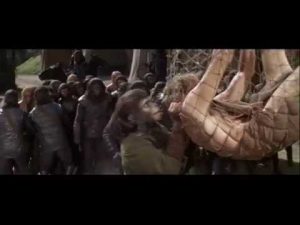
“Take your stinking paws off me you d*** dirty ape!” and


“You maniacs! You blew it up!!!” the latter during possibly the top “gotcha” ever in any movie anywhere.
I have seen:
Planet of the Apes (1968)
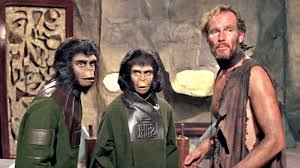
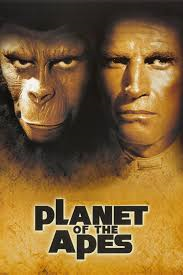
Beneath the Planet of the Apes
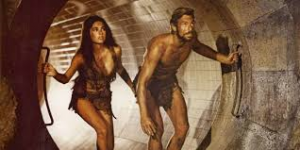
Escape from the Planet of the Apes

Conquest of the Planet of the Apes
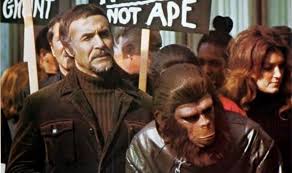
Battle for the Planet of the Apes

(Featuring some of the most popular prepositions: of, beneath, from and for)
AND I watched the TV shows based on the movie:
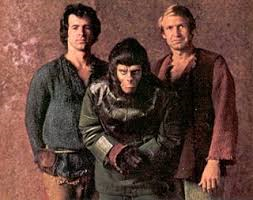 Planet of the Apes
Planet of the Apes and
Return to the Planet of the Apes. Not to mention the terrible 2001 remake
Planet of the Apes which featured Charlton Heston
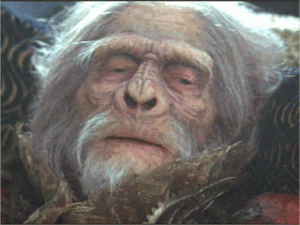
AS an ape, as well as the recent reboots
 Rise
Rise and
 Dawn of P of A.
Dawn of P of A.
In the original, the WOW factor came from the storyline. You think you’re on an alien planet but find primitive humans. THEN you find they are subject/slaves of intelligent clothes wearing speaking apes on horseback! THEN you find you’ve never left Earth at all. Because of the limitations of the prosthetics and clothing the actors depended on their ACTING SKILLS!
I mean, kudos to Andy Sekis in the reboots. He has become the “go to” guy for screen capture – from King Bohan in the videogame
Heavenly Sword to Gollum, King Kong and now Caeser. But when you have CGI and motion capture to correct or enhance that’s cheating.
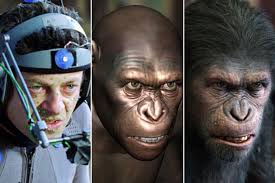
I guess it’s been redone so many times that the surprise element just doesn’t exist, but then I wonder why they bothered at all if simply the visual was all the motivation they had going into the project.
Don’t get me wrong – I’m not a purist. My favorite Trek franchise is the
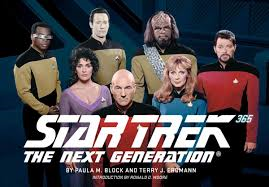 Next Generation
Next Generation,
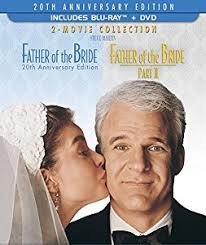
I prefer the Steve Martin
Father of the Bride over Spencer Tracy’s, and while I recognize the flaws in it I LOVED
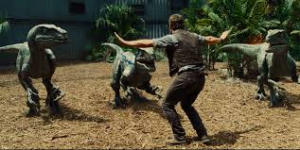 Jurassic World
Jurassic World. I just think you should have a really compelling REASON to remake a film, especially a classic one. And not just to show off your new technical toys.
The premise in
War for P of A is that 10 years after the outbreak of the simian virus which wiped out most of mankind and raised the average IQ of apes and — somehow altered their vocal structure to allow them to speak – apes and man are fighting a war over the Earth. That somehow in all the vast emptiness that is now planet Earth these two remaining surviving groups are so intent on wiping each other out that there is no thought to just —- moving away. To India, England…Florida. No, these two survivalist groups have to duke it out in interspecies war —- right outside of San Francisco.
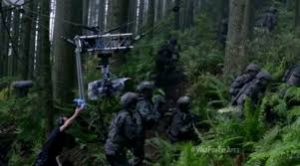
Homages are made to everything from
Apocalypse Now to Moses to the Nazi Holocaust to
Enemy Mine (a very old Dennis Quaid sci fi where a soldier is marooned on the same planet as an alien from the opposing side of a war and the human ends up adopting the alien’s child – cool movie but details are too involved to get into here)
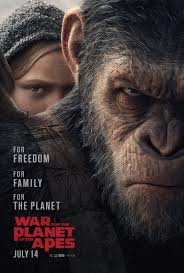

to
Bridge over The River Kwai (where prisoners of war are condemned to build a useless structure by vicious captors with the cooperation of prisoners who, at the end, turn on their captors). And the mismash is dizzying and ultimately annoying.
Woody Harrelson’s character is the Colonel – an insane military officer who has gone over the edge and off the reservation, who holds an almost idolatrous worship-control over those he commands. Reminiscent much? The words “Ape-ocalypse Now” is even written on the inside wall of a tunnel.

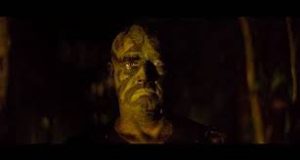
You can't even tell the two movies apart from these photos.
If they had only gone just a BIT further they would have made a successful parody. Instead they have only succeeded in being objectionable. For example: In one scene the Colonel stands on a platform while shaving his head and “blesses” his assembled troops with the razor while the
Star Spangled Banner plays against a backdrop of starving apes in a concentration camp-like prison for apes: insulting Catholicism, besmirking patriotism, offending the military, and trivializing the Holocaust all in one blow.
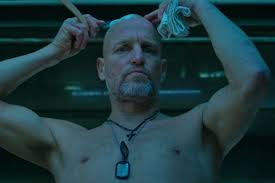
If the film makers were contestants in “How many people can we offend in the shortest amount of time?” I’d vote
War as the most pretenious and obnoxious based on this scene alone.
Then there are the plot holes:
The Colonel kills any human showing the most telling sign of the secondary infection – speechlessness. If you couldn’t speak you were “euthanized” by firing squad. Heaven help you, I guess, if you just have laryngitis.
Why don’t the apes just leave – YEARS ago?
They are in the middle of a pine forest. What do the apes eat? What do the horses eat? There are no grain or fruit storages shown. No gardens. No one is seen doing anything but fighting or sleeping in rocky caves.
When held prisoner why would the Colonel not give the apes anything to eat or drink if he wants them to build a wall?
The apes desperately tell Caesar they are dying without water —- while it’s raining. Smart enough to speak and ride a horse but not as smart as a turkey – which will drown looking up in a storm.
Elephant in the room – how did apes acquire the vocal structure to speak in 10 years? The original virus was to improve the brain's ability to function – the central nervous system, not the anatomy. Apes' vocal cords do not fully close, nor do they have the jaw and tongue agility to form words. Basically it would be like giving your computer a software upgrade and suddenly finding it could now percolate coffee as well.
If they were trying to dove tail this new set of reboots with the old movies then they are about 2,000 years off. The 1968 version took place in 3978 but this reboot takes place pretty much now.
BUT if they were NOT trying to knit the two franchises together, then WHY give two of the apes names of the leaders of the orignal films: Cornelius and Caeser? In the original Cornelius was Caeser’s father. Here Caeser is Cornelius’ father. I understand it could have been a name passed from father to son but for 2,000 years?! And then how coincidental that the little girl who Caeser adopts in the reboot has the same name as the young innocent woman that Charlton Heston takes as his mate in the original. And it’s not like Cornelius, Caeser or Nova are common names. These were specifically chosen. But no explanation is given for how or why the tie-in happens. And if they are just giving superifical nods to the original films it almost feels like a cheap attenpt at trying to link with the audience of the original – like begging for a complement. And even if these three characters were the predecessors of the characters from the 1968 movie, what are the chances that THEIR descendants would feature TOGETHER in an event hundreds of years later?
Then there are the missed opportunities:
The apes come across a lone man and kills him when he tries to defend himself. They find a young girl inside who has been rendered dumb by the mutated virus. This girl, named Nova, bonds with the apes in two days so closely that when one of them is injured and killed she is grief stricken. However, right after she first meets the apes, she sees the man they have killed and her reaction is: “Meh” – another dead body. So, obviously, the dead man isn’t her father. It would be easy to believe a scenario in which the Colonel, having had to kill his infected son, couldn’t bear the thought of killing his daughter too so left her in the care of this soldier. Otherwise what is this “deserter” doing so relatively close to the compound? At no time do the Colonel and the girl ever see each other even when she is skulking about the compound to help the other apes escape, so it would have fit the narrative. Sadly, nothing is ever done with this set of circumstances. It is never explained WHY the girl was there with this lone man she hardly recognized.
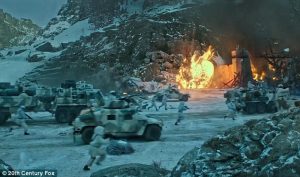
Then there is an unknown force “from the North” which opposes these brutal tactics of the Colonel and attacks at the same time Caesar’s people are escaping. At no time do you ever see any of the soldiers of this new group. Faces are covered in masks and googles and decked out in Battle of the Budge white. At a critical moment Caesar pauses on a mound in full view of this new battalion. All eyes turn to him. I would have paid $50 for one of them to have uncovered their face and shown it was an army of apes — or even better and army of humans and apes working together. The first would have helped explain the future manifestation of the plotline – that while our protagonist apes are smart – the ones in the north are even smarter. The second scanerio would have been an interesting game changer – a different timeline wherein the secondary virus was cured and ape and humans were learning to work together finally. But no such creative luck.
Instead the army raises their guns to shoot Caeser but a well timed deus ex avalanche comes along right then and takes out the force in white. We never do get to find out who the heck they were. Shame too. Might have made for a more interesting story.
They tried really hard to make a relevant movie which would justify this re-reboot of the original. But the most I got out of it was: Let's show off our really cool graphics?!
A parody would have been brilliant. Especially since – did anyone know – the Boulet book upon which 50 years of cinematography rests was a SOCIAL SATIRE?!

Intended to point out the transient nature of intelligence which, if not used, could atrophy and be lost – and then developed by another group willing to take up the mantle.
Roddy McDowell,
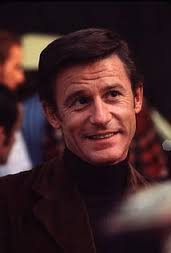
who appeared in ALL of the original movies except
Beneath, and returned as the ape Galen in the TV show of the same name, even took his time expensive and uncomfortable getup onto the Carol Burnett Show.

But these latest manifestations of the Boulet book take themselves so doggone SERIOUSLY it is painful to watch. I mean these guys glower…a LOT.
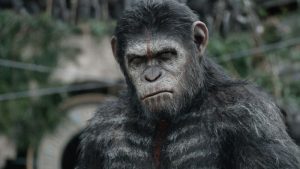
Guess no one making the movie got the joke so now the joke is on them.
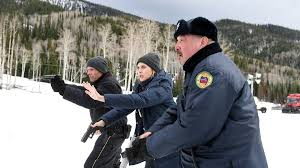
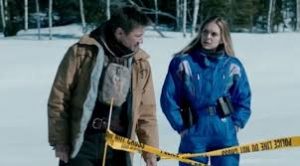
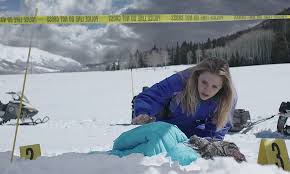 Wind River is, at its core, a murder mystery. A young woman is found barefoot, abused, and frozen to death six miles from anywhere in the Wind River Indian Territory of Wyoming where the night time temperatures get down to negative 20 even in the spring.
Wind River is, at its core, a murder mystery. A young woman is found barefoot, abused, and frozen to death six miles from anywhere in the Wind River Indian Territory of Wyoming where the night time temperatures get down to negative 20 even in the spring.  Her body is discovered by Cory Lambert (Renner) hunter/track of predators for the US Wildlife and Fisheries, and, tragically, family friend of the dead girl. His wordless measured response to finding her body is heartbreaking.
Her body is discovered by Cory Lambert (Renner) hunter/track of predators for the US Wildlife and Fisheries, and, tragically, family friend of the dead girl. His wordless measured response to finding her body is heartbreaking.
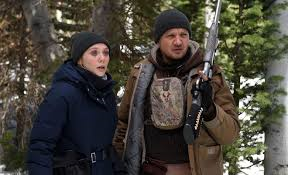
 As you might imagine, there is a LOT going on for this beleaguered protagonist and Renner captures his quiet stoic pain, conveys devoted familial connections, humbly accepts the unearned guilt for the past tragedy, asserts a noble masculinity, and communicates an unflagging determination ALL with a paucity of words.
As you might imagine, there is a LOT going on for this beleaguered protagonist and Renner captures his quiet stoic pain, conveys devoted familial connections, humbly accepts the unearned guilt for the past tragedy, asserts a noble masculinity, and communicates an unflagging determination ALL with a paucity of words. 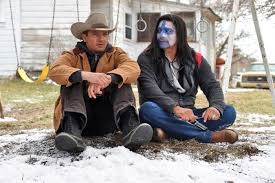 His is an old school acting style the likes of which were seen in Jimmy Stewart’s George Bailey in It’s a Wonderful Life or Gary Cooper’s Sargent York – good, principled men,
His is an old school acting style the likes of which were seen in Jimmy Stewart’s George Bailey in It’s a Wonderful Life or Gary Cooper’s Sargent York – good, principled men,  who act thoughtfully with a steel spine, doing the job others won’t or can’t to protect the innocent as best they can, and try to bring justice into a difficult, sometimes heartless world.
who act thoughtfully with a steel spine, doing the job others won’t or can’t to protect the innocent as best they can, and try to bring justice into a difficult, sometimes heartless world.
 The movie is also beautifully filmed. Utah subs for Wyoming and the vast expanses, open wilderness and sense of brutal but gorgeously frozen mountains is cinematically eye catching.
The movie is also beautifully filmed. Utah subs for Wyoming and the vast expanses, open wilderness and sense of brutal but gorgeously frozen mountains is cinematically eye catching.
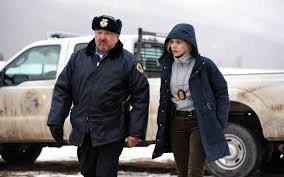 including the iconic Graham Greene as the Tribal Police Officer, are personable and work comfortably with Renner’s character as though, in fact, they have worked together for decades.
including the iconic Graham Greene as the Tribal Police Officer, are personable and work comfortably with Renner’s character as though, in fact, they have worked together for decades.
 There is an artlessly edited flashback which is so unnecessary, sappy, gratuitous and slow it not only interrupts the suspension of disbelief but makes you wonder if, like a bad TV connection, you have been flipped to a different channel. Worst of all it not only contributes nothing to the plot but actually takes away from the flow, the mood, and the suspense. The director could have literally pulled out the entire scene in one unwanted whole, like a splinter from your foot, and it would have been completely unmissed. Its poor inclusion is especially damning as the rest of the movie is pretty darned good.
There is an artlessly edited flashback which is so unnecessary, sappy, gratuitous and slow it not only interrupts the suspension of disbelief but makes you wonder if, like a bad TV connection, you have been flipped to a different channel. Worst of all it not only contributes nothing to the plot but actually takes away from the flow, the mood, and the suspense. The director could have literally pulled out the entire scene in one unwanted whole, like a splinter from your foot, and it would have been completely unmissed. Its poor inclusion is especially damning as the rest of the movie is pretty darned good.

 This is a visually impressive but moody, grim film. If it were not for the jarringly bright, snowy, stunningly beautiful shots of mountain vistas one might even call it a film noir.
This is a visually impressive but moody, grim film. If it were not for the jarringly bright, snowy, stunningly beautiful shots of mountain vistas one might even call it a film noir. 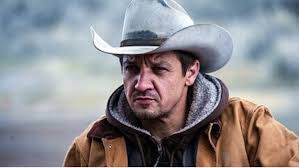 The center of this film is the character studies and the axis about which everyone turns is the amazing character Renner crafts as Lambert.
The center of this film is the character studies and the axis about which everyone turns is the amazing character Renner crafts as Lambert.

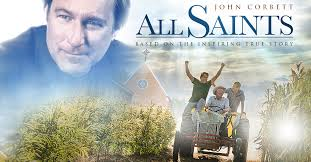
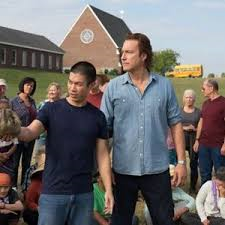

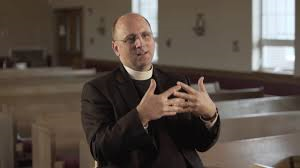
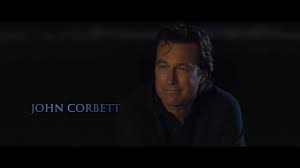
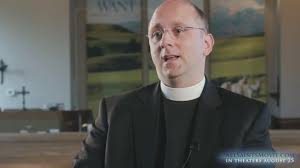
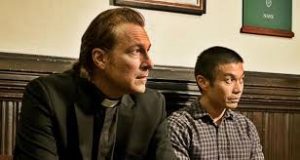
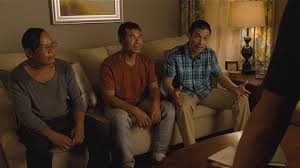
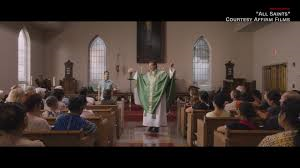
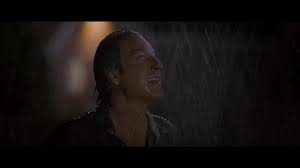

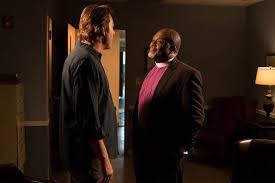
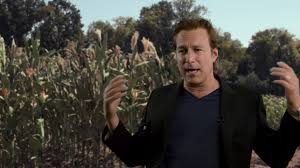
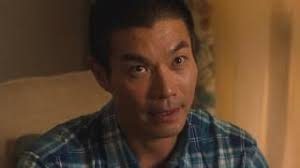

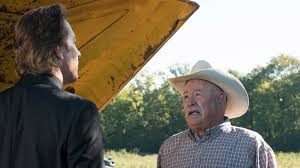
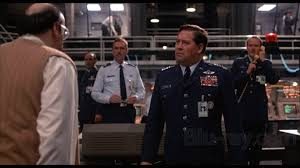 BTW – Appropos of nothing except my own fond memory of the scene – Corbin, as General Beringer, says one of my all time favorite lines, which I have applied every time I have been frustratingly faced with one of those forced upgrades we must all endure from either our business programs or Microsoft: “Mr. McKittrick, after very careful consideration, sir, I've come to the conclusion that your new defense system sucks.” LOLOL
BTW – Appropos of nothing except my own fond memory of the scene – Corbin, as General Beringer, says one of my all time favorite lines, which I have applied every time I have been frustratingly faced with one of those forced upgrades we must all endure from either our business programs or Microsoft: “Mr. McKittrick, after very careful consideration, sir, I've come to the conclusion that your new defense system sucks.” LOLOL
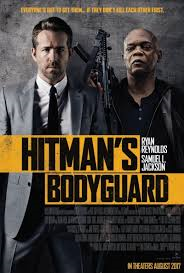


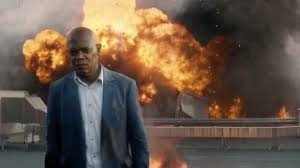
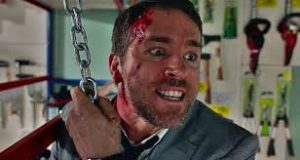
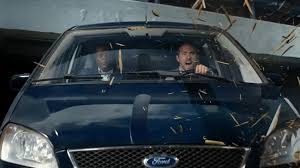
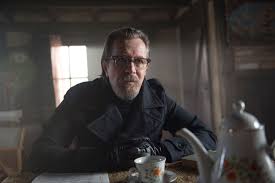


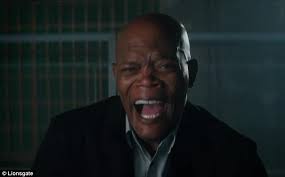

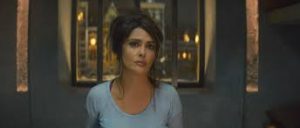
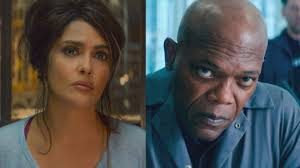

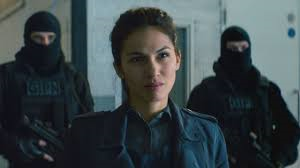

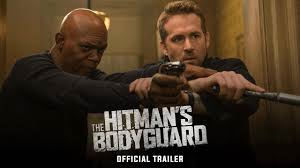
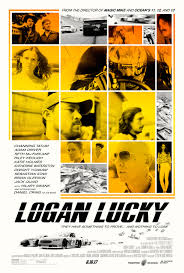
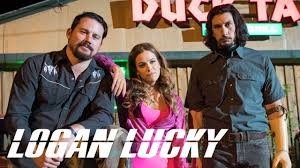
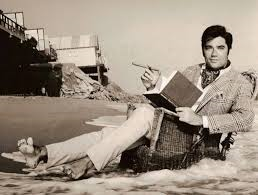
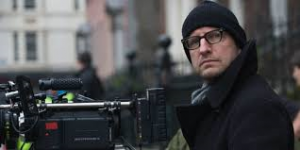
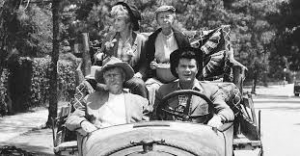 +
+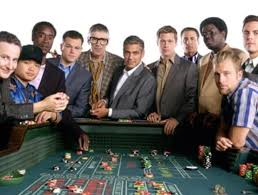
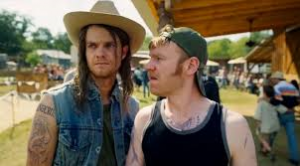
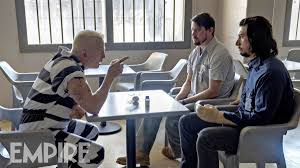
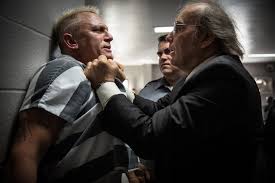
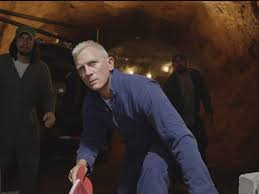
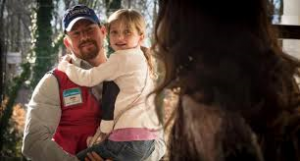

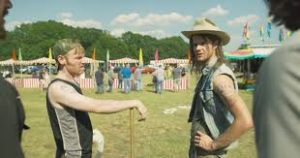
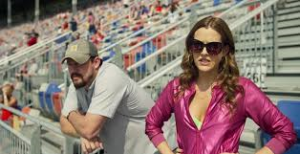
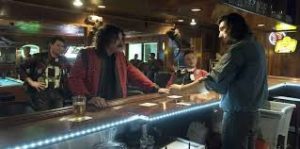




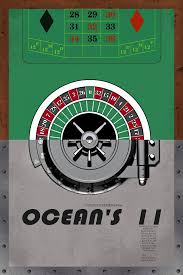

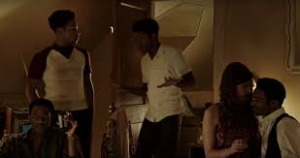
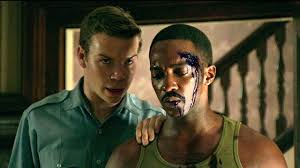
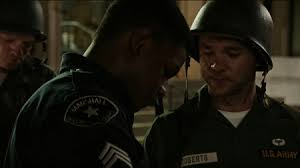
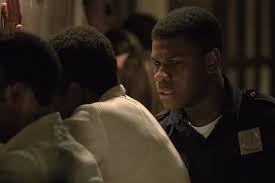

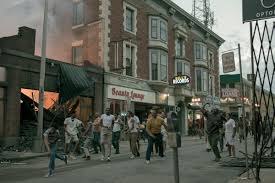

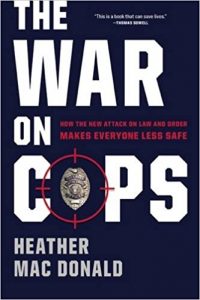
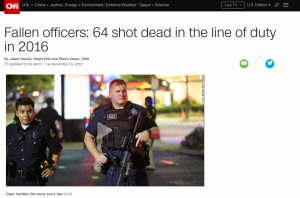
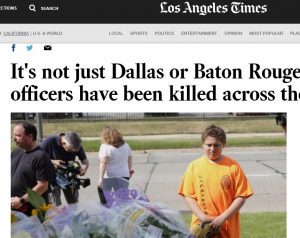
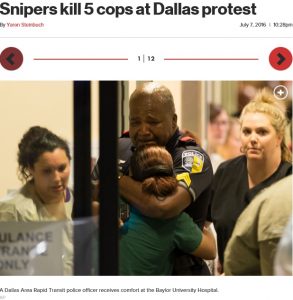
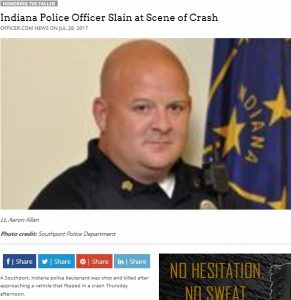
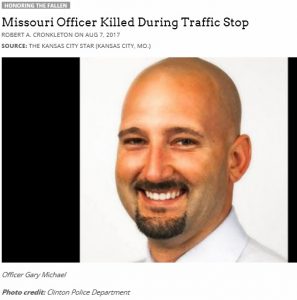
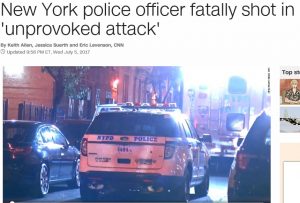
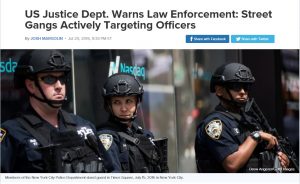
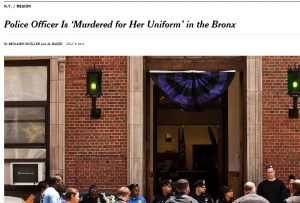

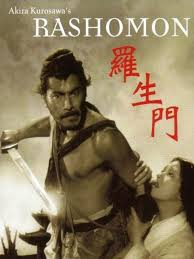

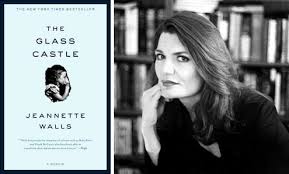
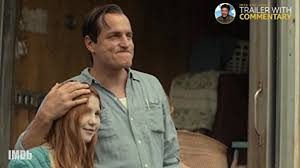
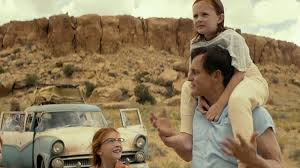

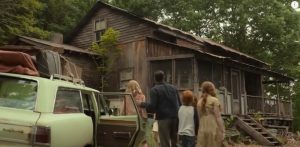
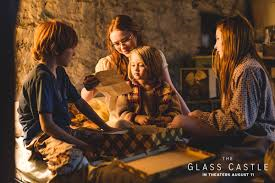

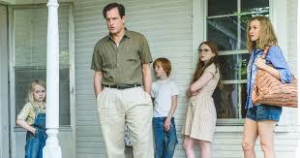
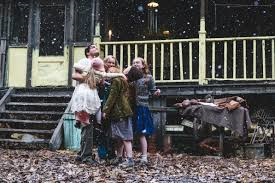

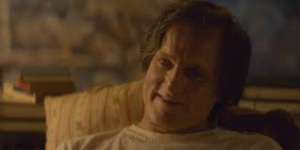



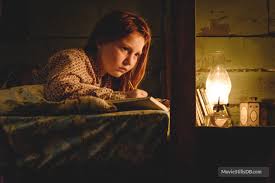
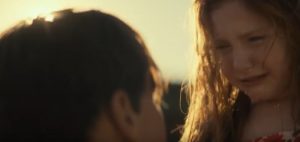

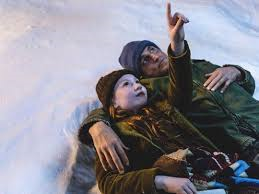
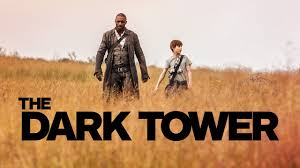 Popular wisdom says that origin books are almost always better than the movies based on them. While often true the reverse is more prevalent than you might think.
Popular wisdom says that origin books are almost always better than the movies based on them. While often true the reverse is more prevalent than you might think. 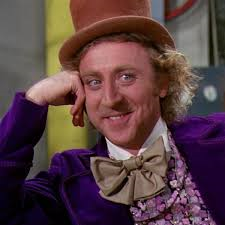 Take Gene Wilder’s Willie Wonka and The Chocolate Factory. The movie, based on the book Charlie and the Chocolate Factory, did not wander far from the source material. Though since Dahl wrote both the book and the first draft of the screenplay that is not surprising. But the movie had an added fillip which, to me, was the most memorable moment in the story. Charlie had snuck a sip of Fizzy Lifting Drink and Wonka tells Charlie because of that he won’t get any reward. But it’s a test.
Take Gene Wilder’s Willie Wonka and The Chocolate Factory. The movie, based on the book Charlie and the Chocolate Factory, did not wander far from the source material. Though since Dahl wrote both the book and the first draft of the screenplay that is not surprising. But the movie had an added fillip which, to me, was the most memorable moment in the story. Charlie had snuck a sip of Fizzy Lifting Drink and Wonka tells Charlie because of that he won’t get any reward. But it’s a test. 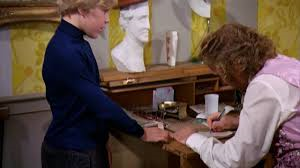 Despite Wonka’s cruel and angry behavior to him Charlie gives Wonka back the gobstopper souvenir instead of selling it to Wonka’s competitor. Wonka says: "So shines a good deed in a weary world," then tells Charlie he is to inherit the entire factory. It’s a beautiful moment masterfully played out between Wilder and Ostrum. But it wasn’t in the book. To me it was the crown jewel of the adventure.
Despite Wonka’s cruel and angry behavior to him Charlie gives Wonka back the gobstopper souvenir instead of selling it to Wonka’s competitor. Wonka says: "So shines a good deed in a weary world," then tells Charlie he is to inherit the entire factory. It’s a beautiful moment masterfully played out between Wilder and Ostrum. But it wasn’t in the book. To me it was the crown jewel of the adventure.
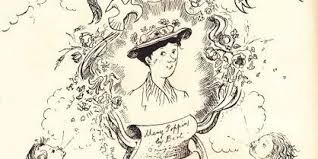 Mary Poppins was a series of adventures with the title character coming and going into and out of the Banks' children's lives, as the winds changed: trips around the world, tea parties on the ceiling, learning to cook when the Banks’ cook goes on leave, the birth of other children in the Banks' household, etc – some knit into the movie, most not. But no where does it have the central theme of rescuing not the children, but ultimately the Banks’ children’s father, despite the fact, according to the movie
Mary Poppins was a series of adventures with the title character coming and going into and out of the Banks' children's lives, as the winds changed: trips around the world, tea parties on the ceiling, learning to cook when the Banks’ cook goes on leave, the birth of other children in the Banks' household, etc – some knit into the movie, most not. But no where does it have the central theme of rescuing not the children, but ultimately the Banks’ children’s father, despite the fact, according to the movie 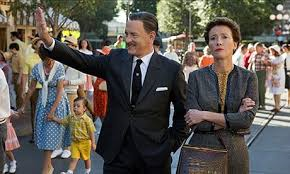 Saving Mr. Banks, this was the intent of her stories. Apparently she was just too coy with the theme. The movie, however, makes this beautiful theme crystal clear.
Saving Mr. Banks, this was the intent of her stories. Apparently she was just too coy with the theme. The movie, however, makes this beautiful theme crystal clear. 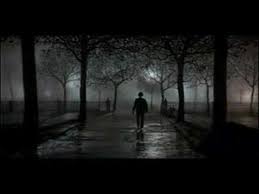 The hair on the back of your neck will stand up and the hardest will get teary watching a defeated Mr. Banks, knowing he is about to be fired, believing he has failed his children, stand, in the dark at the bottom of the steps of St Paul’s Cathedral where the children had wanted to buy feed for the birds. As the instrumental version of Feed the Birds swells in the background and you know there is a change of wind coming for HIM, you know you are experiencing one of the great moments of cinema. This was not nor could have been adequately portrayed in the book.
The hair on the back of your neck will stand up and the hardest will get teary watching a defeated Mr. Banks, knowing he is about to be fired, believing he has failed his children, stand, in the dark at the bottom of the steps of St Paul’s Cathedral where the children had wanted to buy feed for the birds. As the instrumental version of Feed the Birds swells in the background and you know there is a change of wind coming for HIM, you know you are experiencing one of the great moments of cinema. This was not nor could have been adequately portrayed in the book.
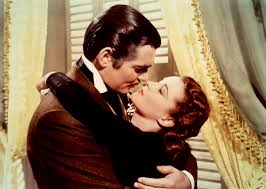 Gone With the Wind, while a classic book did not capture the imagination the way the movie did with its sweeping panoramas of Tara in her glory and stricken Confederate soldiers at the railroad station or the burning of Atlanta all against Max Steiner’s magnificent soundtrack and the incendiary chemistry between Leigh and Gable as Scarlett and Rhett played out in Technicolor.
Gone With the Wind, while a classic book did not capture the imagination the way the movie did with its sweeping panoramas of Tara in her glory and stricken Confederate soldiers at the railroad station or the burning of Atlanta all against Max Steiner’s magnificent soundtrack and the incendiary chemistry between Leigh and Gable as Scarlett and Rhett played out in Technicolor.
 Harry Potter series, which are based on a sequence of books so packed with rich magical ideas and creativity that even in 8 movies the filmmakers could only make a Reader’s Digest version. Short shrift was given to some characters like
Harry Potter series, which are based on a sequence of books so packed with rich magical ideas and creativity that even in 8 movies the filmmakers could only make a Reader’s Digest version. Short shrift was given to some characters like 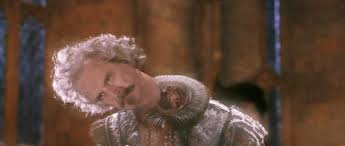 Nearly Headless Nick and some were left out altogether
Nearly Headless Nick and some were left out altogether 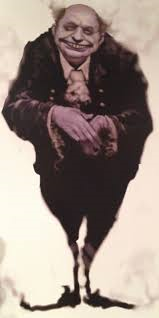 like Peeves; and some brilliant parts of the books were sadly absent from the films: Harry dressing down Lupin for virtually abandoning his wife and child; the previously misjudged Fleur Delacour declaring her continued devotion to the now scarred Bill Weasley saying "I am beautiful enough for the both of us." It was obvious the movies were a labor of love but just couldn’t do the books justice.
like Peeves; and some brilliant parts of the books were sadly absent from the films: Harry dressing down Lupin for virtually abandoning his wife and child; the previously misjudged Fleur Delacour declaring her continued devotion to the now scarred Bill Weasley saying "I am beautiful enough for the both of us." It was obvious the movies were a labor of love but just couldn’t do the books justice.
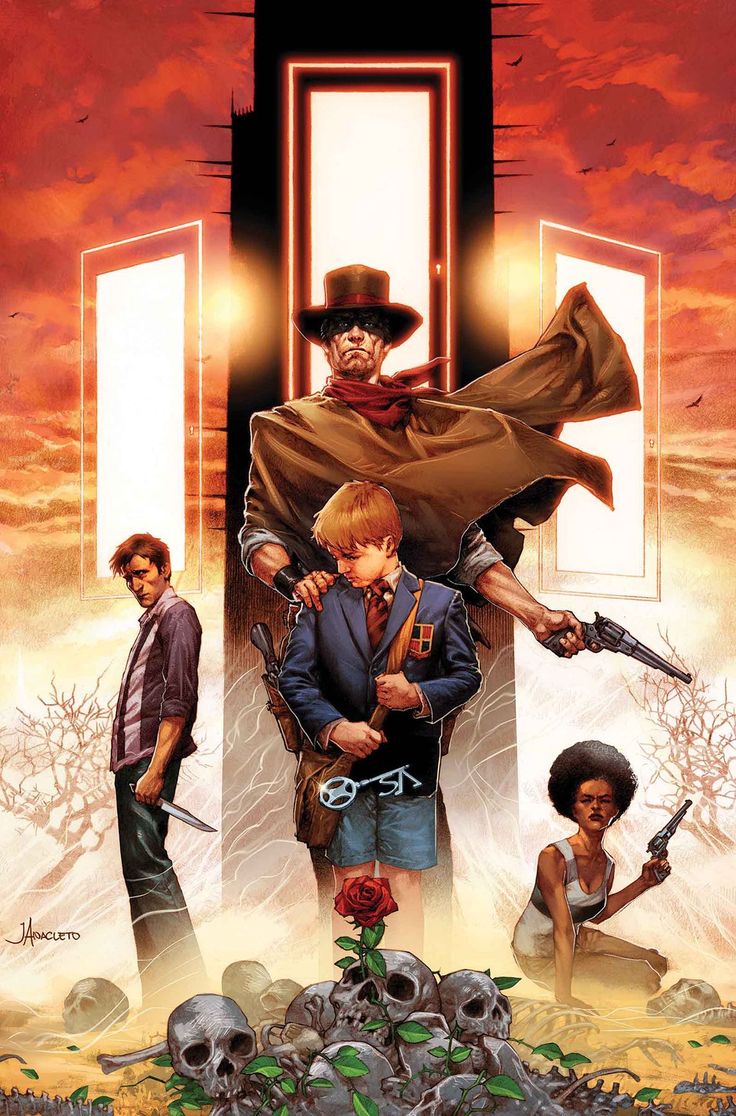 Then there’s Dark Tower. *weary sigh* I once was a fan of Stephen King. That was before he went on a diatribe against the pro-life movement, but that’s a story for another blog. During the height of my King fan-reading I tried to slog through the series of Dark Tower books AS they were coming out. I couldn’t get past the third of what would eventually be eight. It was an incomprehensible mess. It seemed as though King would wake up every morning and before his first cup of coffee spill, without filter, whatever thoughts came to him. Then the next day he would do the same thing, making weak efforts to tie what he’d written the previous day into the current days "work". There were lobster monsters and vampires, slow mutants and doomed theme parks, fatal rides on mining cars and homages to his other books. And in the book ROLAND, THE GUNSLINGER THOUGHTLESSLY MURDERS JAKE just to be able to continue his quest towards this Dark Man who, as time goes on, seems to not be quite as bad as the the Gunslinger himself. Then at the end of the 8th book (I read the Wikipedia synopsis recently as I didn’t want to wade through the rest of the books) King pretty much gives a middle finger to his audience, leaving the Gunslinger to start his quest all over again with no real resolution. The series reads like a challenge to see just how devoted his fans really are – like an insecure child constantly misbehaving just to be forgiven, demanding his parents prove they love him.
Then there’s Dark Tower. *weary sigh* I once was a fan of Stephen King. That was before he went on a diatribe against the pro-life movement, but that’s a story for another blog. During the height of my King fan-reading I tried to slog through the series of Dark Tower books AS they were coming out. I couldn’t get past the third of what would eventually be eight. It was an incomprehensible mess. It seemed as though King would wake up every morning and before his first cup of coffee spill, without filter, whatever thoughts came to him. Then the next day he would do the same thing, making weak efforts to tie what he’d written the previous day into the current days "work". There were lobster monsters and vampires, slow mutants and doomed theme parks, fatal rides on mining cars and homages to his other books. And in the book ROLAND, THE GUNSLINGER THOUGHTLESSLY MURDERS JAKE just to be able to continue his quest towards this Dark Man who, as time goes on, seems to not be quite as bad as the the Gunslinger himself. Then at the end of the 8th book (I read the Wikipedia synopsis recently as I didn’t want to wade through the rest of the books) King pretty much gives a middle finger to his audience, leaving the Gunslinger to start his quest all over again with no real resolution. The series reads like a challenge to see just how devoted his fans really are – like an insecure child constantly misbehaving just to be forgiven, demanding his parents prove they love him.
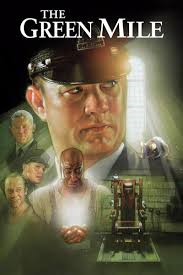 Green Mile was a beautifully written modern parable and I’d be hard pressed to say which I liked better – book or movie. They were both well done, the former by King the latter by Frank Darabont.
Green Mile was a beautifully written modern parable and I’d be hard pressed to say which I liked better – book or movie. They were both well done, the former by King the latter by Frank Darabont.
 So they took the general idea of the Dark Tower quest, the 3 main characters – Roland, Jake and Walter the Dark Man, SOME of the weirdness
So they took the general idea of the Dark Tower quest, the 3 main characters – Roland, Jake and Walter the Dark Man, SOME of the weirdness  (animal mutants wearing people faces) and created a STORY.
(animal mutants wearing people faces) and created a STORY. 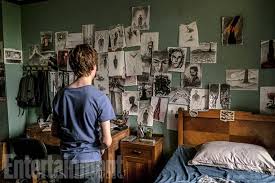 Fatherless Jake and his widowed then remarried mother live in a New York beset with signs of coming cataclysm – earthquakes and eerie storms. His visions of the gunslinger’s Wasteland – a world which has "moved on" – and his violent outbursts drive his desperate mother to seek help from psychiatrists who ultimately schedule him for a stay at a retreat for troubled youths. When Jake realizes the social workers who have come to take him are mutants from the Wasteland of his visions he escapes through a portal in an abandoned house possessed by a demon sent by the Dark Man….and THIS is the version of the story that makes SENSE!
Fatherless Jake and his widowed then remarried mother live in a New York beset with signs of coming cataclysm – earthquakes and eerie storms. His visions of the gunslinger’s Wasteland – a world which has "moved on" – and his violent outbursts drive his desperate mother to seek help from psychiatrists who ultimately schedule him for a stay at a retreat for troubled youths. When Jake realizes the social workers who have come to take him are mutants from the Wasteland of his visions he escapes through a portal in an abandoned house possessed by a demon sent by the Dark Man….and THIS is the version of the story that makes SENSE!
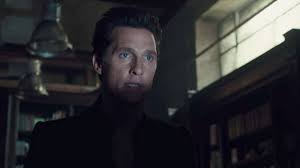 The Dark Man, Walter, is played like a sinister Vegas magician by Matthew "Interstellar" McConaughey. Not his fault – just the way it’s written. McConaughey does his best to tread that fine line between over the top scene chewing bad guy and seductive Hannibal Lector-like serial killer. The result is serviceable but nothing to write home about.
The Dark Man, Walter, is played like a sinister Vegas magician by Matthew "Interstellar" McConaughey. Not his fault – just the way it’s written. McConaughey does his best to tread that fine line between over the top scene chewing bad guy and seductive Hannibal Lector-like serial killer. The result is serviceable but nothing to write home about.
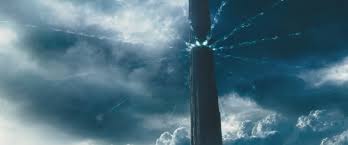 If the Dark Tower is the force for good, why is it DARK? The thing looks pretty darned creepy as portrayed – not some bastion of good and cohesive force. Traditionally, especially in a mythos-like fable of good and evil something this DARK would represent evil. And why is something DARK under attack from the DARK Man? The name similarities are either a product of a direct intentional relationship or sloppy writing. If the former there is a glaring inconsistency. As this is a completely invented universe we have no context for making a distinction and are given no explanation. Where did the mutants come from and why does the Dark Man make them wear masks? Why do the "mutants" look like large versions of Ratty from Wind in the Willows? How did the Wasteland come to "move on" and where did that expression come from? Not to be pedantic or facitious but where did it move to? Just an odd phrase for something falling apart. How does the Gunslinger have the power to resist the Dark Man’s magic and if the Dark man has the power to put people under his control just by waving at them why does he play with Roland like a sated cat with a mouse instead of just sending people by the thousands to overwhelm him?
If the Dark Tower is the force for good, why is it DARK? The thing looks pretty darned creepy as portrayed – not some bastion of good and cohesive force. Traditionally, especially in a mythos-like fable of good and evil something this DARK would represent evil. And why is something DARK under attack from the DARK Man? The name similarities are either a product of a direct intentional relationship or sloppy writing. If the former there is a glaring inconsistency. As this is a completely invented universe we have no context for making a distinction and are given no explanation. Where did the mutants come from and why does the Dark Man make them wear masks? Why do the "mutants" look like large versions of Ratty from Wind in the Willows? How did the Wasteland come to "move on" and where did that expression come from? Not to be pedantic or facitious but where did it move to? Just an odd phrase for something falling apart. How does the Gunslinger have the power to resist the Dark Man’s magic and if the Dark man has the power to put people under his control just by waving at them why does he play with Roland like a sated cat with a mouse instead of just sending people by the thousands to overwhelm him?
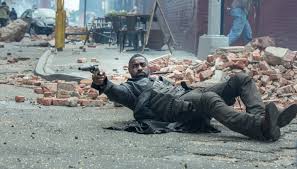
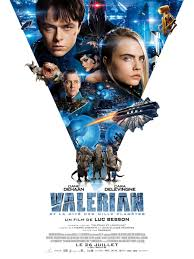
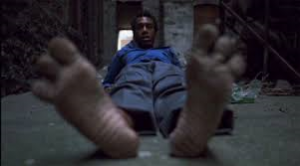
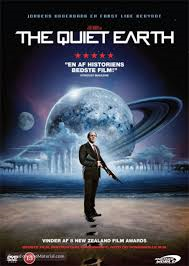
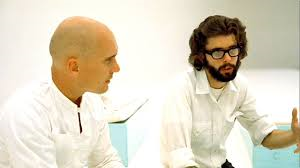
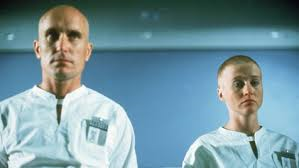
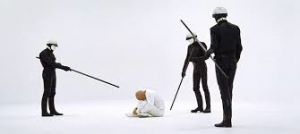
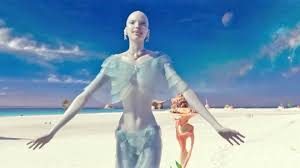
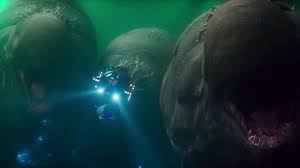

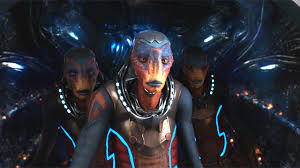
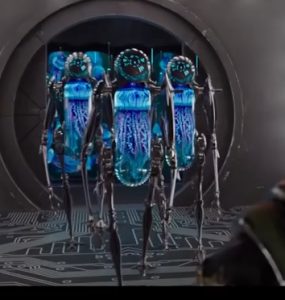
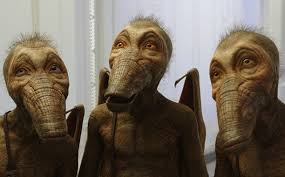





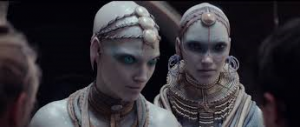
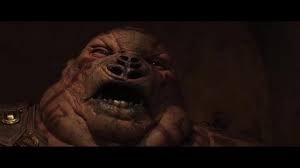

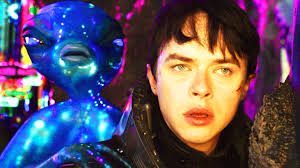

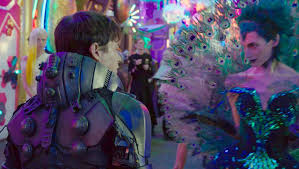
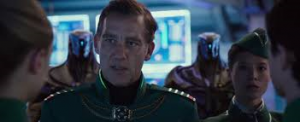
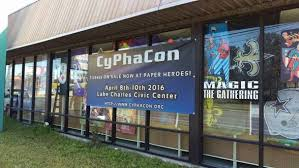
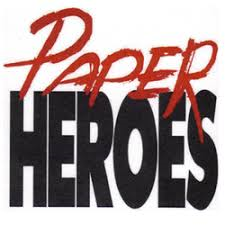
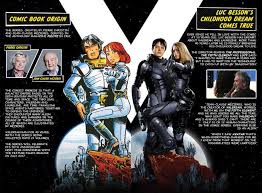
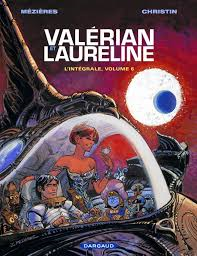
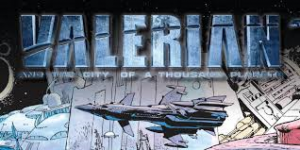


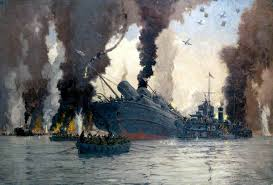

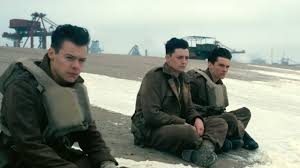

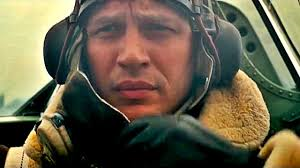
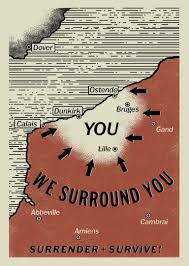
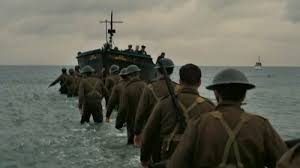

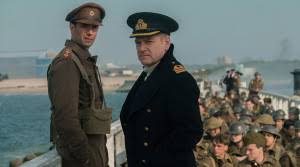
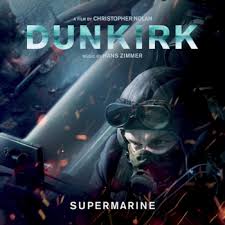
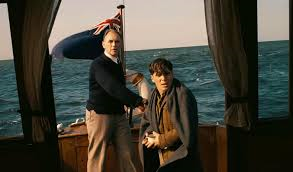
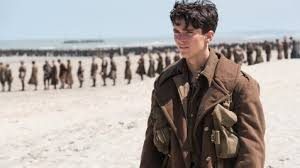
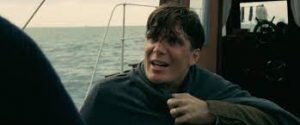
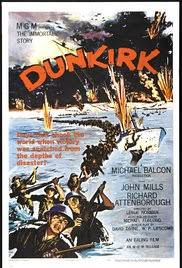
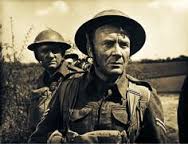
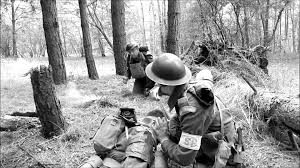
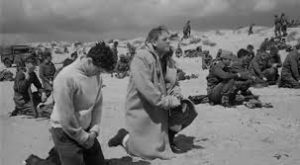
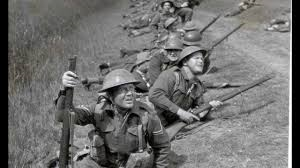
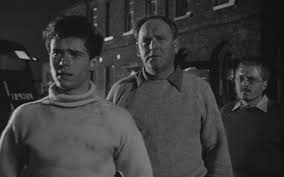
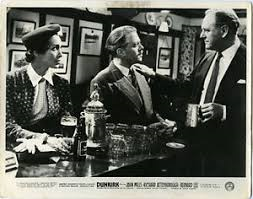
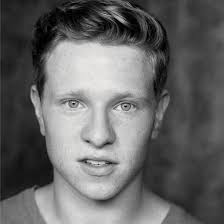
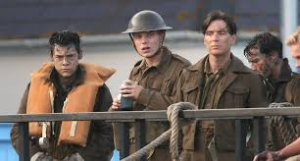



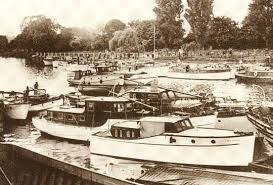
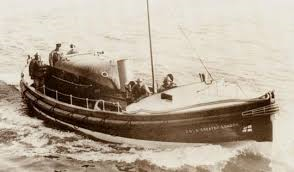
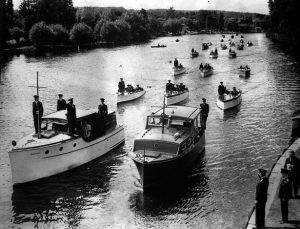
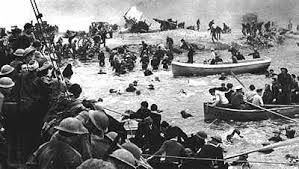
















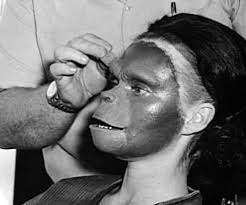
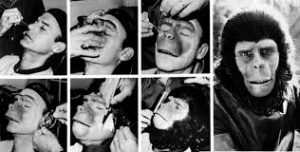
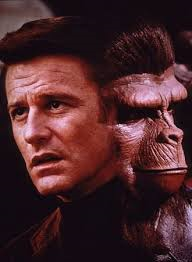
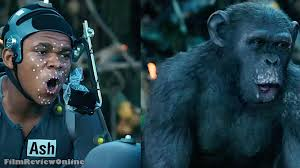
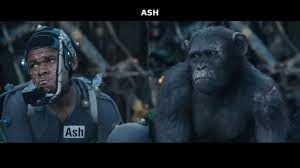
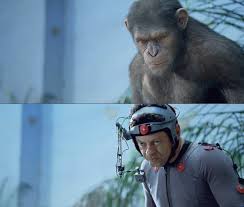
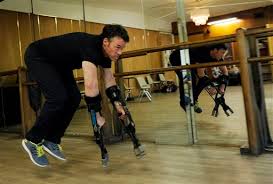
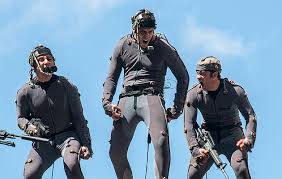









 You can't even tell the two movies apart from these photos.
You can't even tell the two movies apart from these photos.

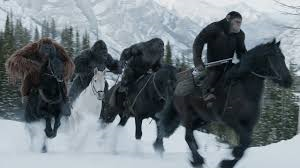
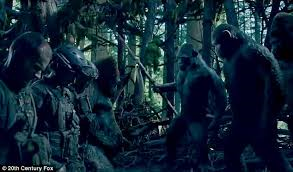
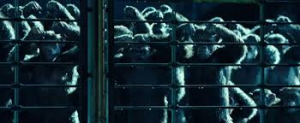
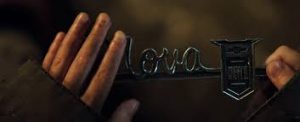


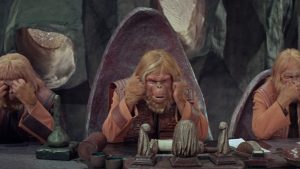
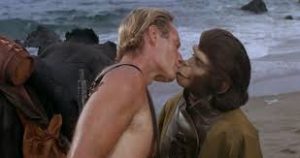
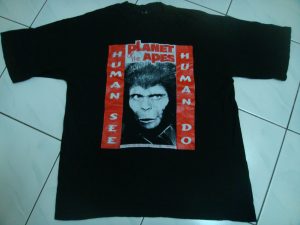

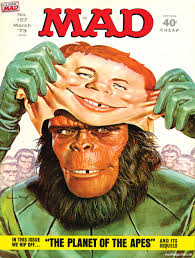

 But these latest manifestations of the Boulet book take themselves so doggone SERIOUSLY it is painful to watch. I mean these guys glower…a LOT.
But these latest manifestations of the Boulet book take themselves so doggone SERIOUSLY it is painful to watch. I mean these guys glower…a LOT.